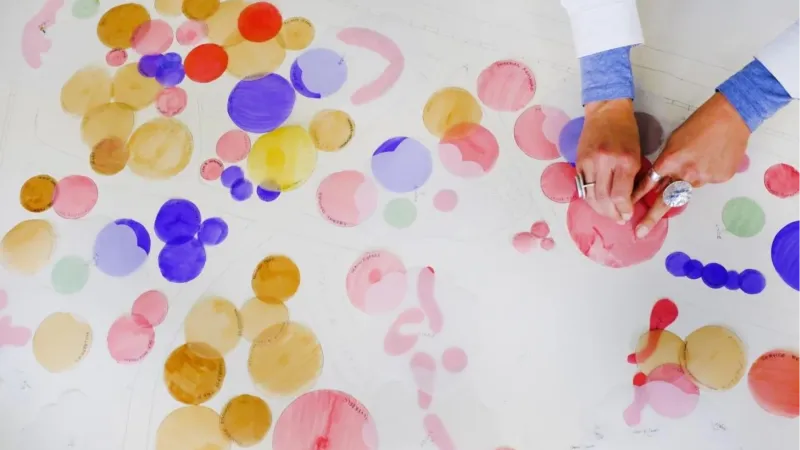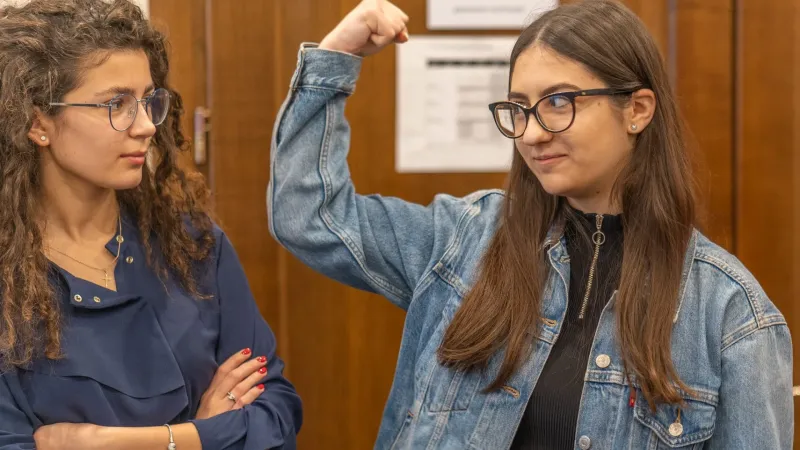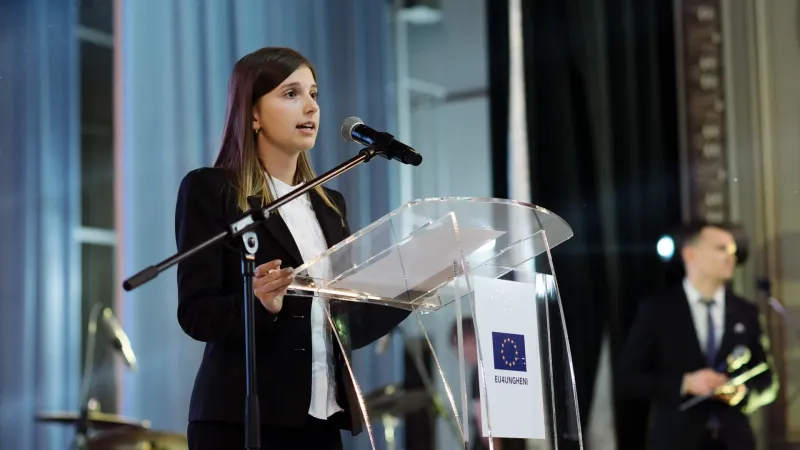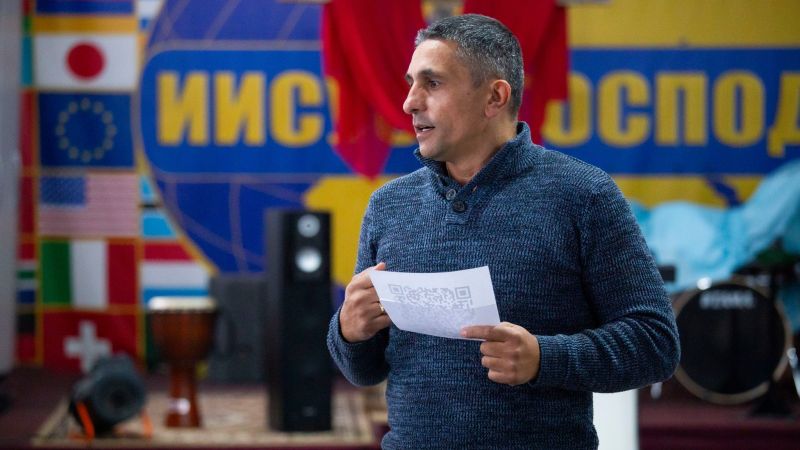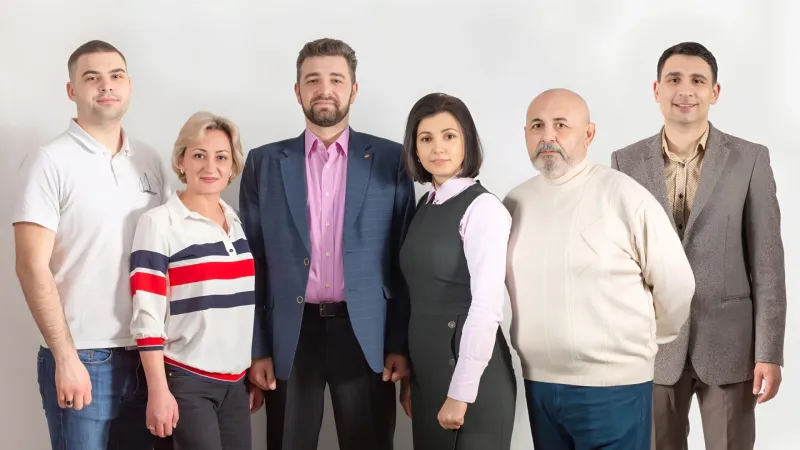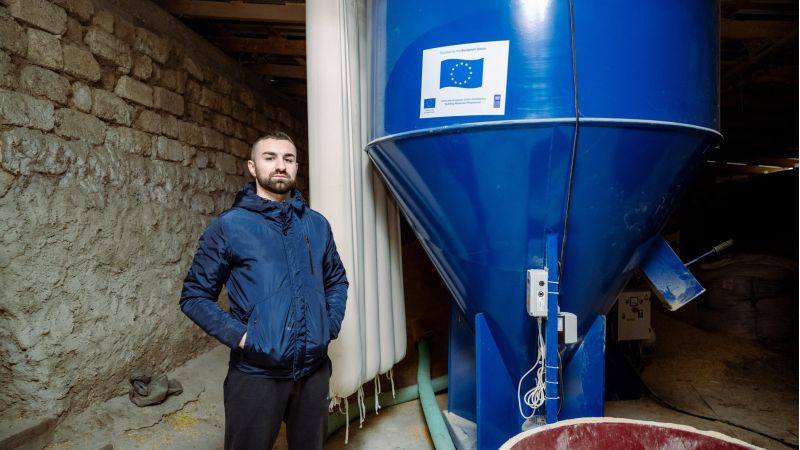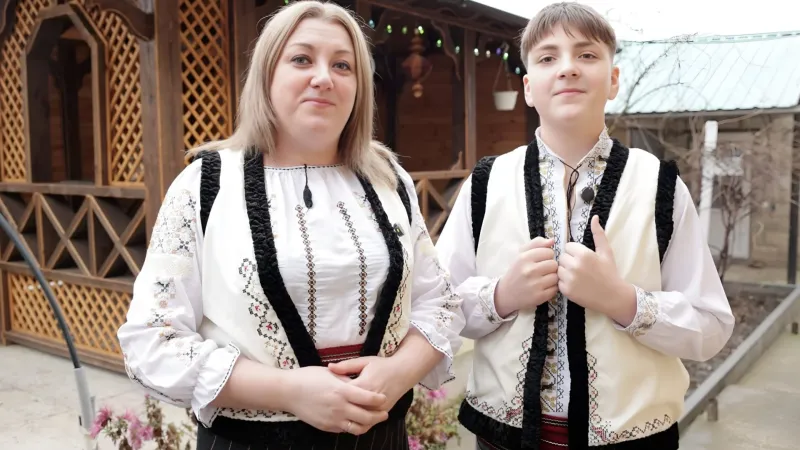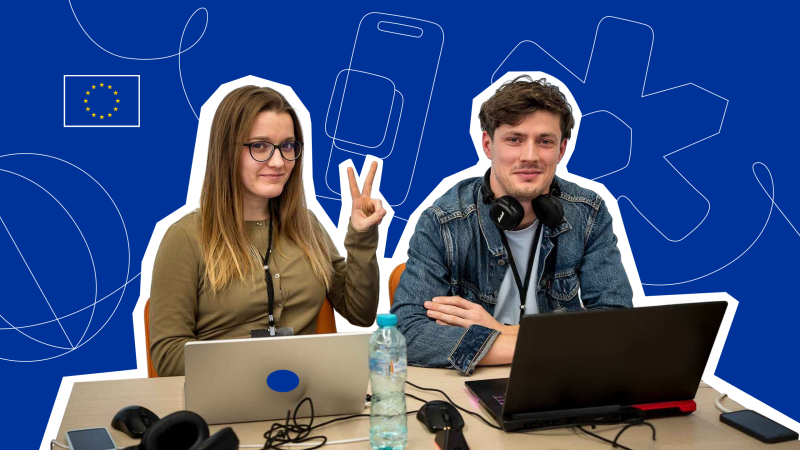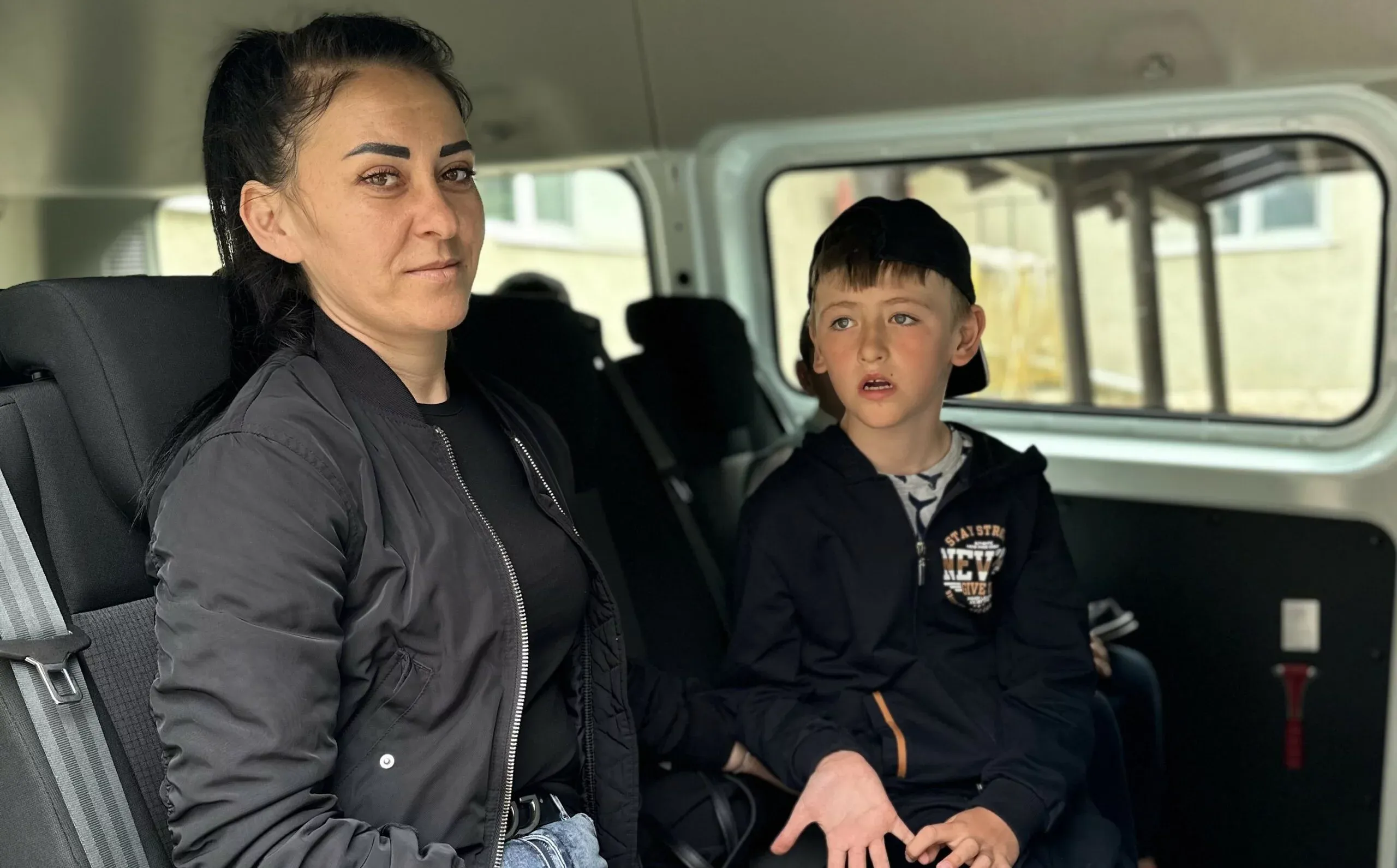
Uși deschise spre reabilitare pentru copiii cu nevoi speciale din Ștefan Vodă
Dumitru are șase ani. La naștere, a fost diagnosticat cu sindromul Down. A început fizioterapia la vârsta de un an, fiind cel mai mic din grupul său din spital. Acum are nevoie din ce în ce mai mult de terapii de dezvoltare, cum ar fi logopedie, socializare, suport emoțional și terapie ocupațională. Iulia, mama sa, ține foarte mult să îl implice în toate aceste terapii și activități. Iulia și fiul ei locuiesc într-un sat mic – Slobozia, la 10 km de orașul Ștefan Vodă, care găzduiește centre de reabilitare pentru copiii cu nevoi speciale. Și de fiecare dată, o călătorie cu autobuzul până în oraș și înapoi este o provocare dificilă pentru ambii.
Asociația PRODOCS a decis să-l ajute pe Dumitru și pe alți zeci de copii cu nevoi speciale, nu numai din orașul Ștefan Vodă, ci din tot raionul Ștefan Vodă, să aibă un acces mai bun la serviciile sociale. În anul 2021 Asociația a inițiat o colaborare cu autoritatea locală – Direcția Generală de Asistență Socială și Protecția Familiei și Centrul de Plasament Temporar și Asistență Specializată „Trust”. La acel moment, Centrul oferea doar servicii medicale pentru copiii cu dizabilități, cum ar fi masaj, terapie fizică și logopedie, deși avea condițiile necesare și potențialul de a-și extinde serviciile. „Folosind sprijinul UE primit prin intermediul Fundației Soros Moldova, am decis să introducem servicii sociale în Centrul «Trust» și să le extindem în satele de până la 20 km distanță de orașului Ștefan Vodă”, explică Cristina Cușchevici, managerul de proiect.
Realizarea imediată a proiectului a fost achiziționarea unui microbuz echipat cu un lift pentru scaune cu rotile ce permite transportarea gratuită a copiilor din 19 comunități la centru. „Înainte veneam cu autobuzul și trebuia să așteptăm ore în șir în stația de autobuz” – spune Iulia. „Mă bucur că echipa mobilă a ajuns în satul nostru. Datorită lor, avem un acces regulat la serviciile Centrului.”
Capacitățile în creștere ale centrului „Trust” au continuat odată cu introducerea serviciilor sociale. Sprijinul psihologic și pedagogic, terapia prin joc, terapia prin artă, terapia ocupațională, grupurile de comunicare au fost activități noi pentru centrul medical, care au trebuit să fie abordate la mai multe niveluri. Asociația PRODOCS a facilitat elaborarea documentelor interne pentru a se asigura că furnizarea de servicii sociale respectă Standardele Minime de Calitate. Finanțarea UE a ajutat, de asemenea, la dotarea saloanelor de terapie fizică, ocupațională și logopedică, a spațiului pentru activități de socializare și a unei mini-ludoteci.
În paralel cu aceste activități, PRODOCS a lansat activități de socializare și de dezvoltare a abilităților de viață pentru copiii cu nevoi speciale. „Am introdus un program de 3 luni, care să implice un copil, ținând cont de capacitatea și sănătatea acestuia, în diverse activități, cum ar fi ergoterapie, ludoterapie, art-terapie, jocuri de rol, și să îl țină în centru dincolo de o simplă fizioterapie” – spune managerul de proiect, precizând: „Acești copii rămân adesea izolați acasă, pe când aici au ocazia să socializeze și să interacționeze unii cu alții”.
Renat are 8 ani. La vârsta de trei ani a fost diagnosticat cu autism sever. A început să vorbească târziu și are dificultăți de comunicare. „Obișnuiam să venim la Centru pentru fizioterapie” – povestește Eugenia, mama sa. „Dar acum merge și la psiholog, la pedagogul social și la alți pedagogi care îl ajută să comunice cu ceilalți. Și văd că Renat face progrese. Acasă, are tendința de a fi mai nerăbdător, dar aici este implicat în lucruri noi, iar atenția sa este mai concentrată. Îi place să petreacă timp cu personalul, se obișnuiește să fie în preajma oamenilor.”
Continuând proiectul, echipa PRODOCS a observat însă că nu numai copiii aveau nevoie de socializare și sprijin. Părinții lor, adesea abandonați în propria lor lume de probleme și preocupări, aveau nevoie de un spațiu pentru schimb de experiență și problemele cu care se confruntă, cu alți părinți. Astfel, asociația a organizat pentru părinți ședințe de terapie de grup și consiliere psihologică individuală. Iar sesiunile de grup cu diverși specialiști – un psiholog, un psihoterapeut, un pedagog și un specialist care lucrează cu persoanele cu dizabilități – i-au învățat pe părinți cum să sprijine și să interacționeze cel mai bine cu copiii lor.
Dezvoltarea de noi servicii a necesitat, de asemenea, cunoștințe și abilități suplimentare din partea specialiștilor Centrului „Trust” și ai Direcției de Asistență Socială. Cursurile de instruire și sesiunile de mentorat, organizate cu implicarea diverșilor experți, au adăugat o nouă componentă socio-pedagogică la activitatea personalului și au oferit diverse metode și tehnici de lucru cu copiii cu nevoi speciale. Lina Stepanov, care este psiholog, își amintește: „În practica mea, am avut cazuri în care copiii cu autism aveau anumite crize de comportament, de exemplu, se aruncau pe jos. Trebuia să-i conving cu blândețe, dar nu știam cum. La unul dintre cursuri, un specialist de la asociația „SOS Autism” ne-a sfătuit să ne întoarcem cu spatele la copil și să păstrăm tăcerea. Și a funcționat! Astfel de metode nu pot fi descoperite de unul singur, ele pot fi împărtășite doar de alți specialiști.”
Rezultatele generale ale proiectului sunt impresionante. Numărul de copii cu nevoi speciale care beneficiază de serviciile centrului a crescut de trei ori: de la 36 în 2021 la 128 pe parcursul implementării proiectului. La un an și jumătate de la încheierea programului, cifrele rămân la fel de ridicate, demonstrând, de asemenea, o îmbunătățire considerabilă a abilităților de comunicare și socializare la jumătate dintre copii. „Văd angajamentul autorităților publice de a menține și dezvolta serviciile Centrului, de exemplu, prin extinderea programului de implicare a copiilor de la 3 luni la un an pentru a asigura un progres mai bun. Aceasta este o mare realizare.” – confirmă Cristina.
Asociația PRODOCS a devenit un promotor al schimbării pentru reabilitarea copiilor din Ștefan Vodă. Asociația a atras finanțarea inițială necesară pentru a demara procesul de îmbunătățire și diversificare serviciilor sociale – ce a încurajat autoritățile publice să investească în continuare. La fel de important a fost și rolul asociației în conectarea Centrului „Trust” la o rețea de părți interesate, atât autorități publice, cât și organizații ale societății civile, care a sporit potențialul Centrului și a asigurat succesul acestuia în viitor.
Autor: Volha Prokharava
